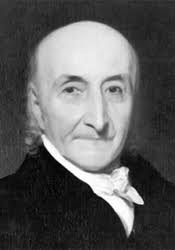Today’s quotation of the day is from Albert Gallatin’s January 1832 essay “Memorial of the Committee of the Free Trade Convention” (available in full here), a part of which is quoted on page 169 of Douglas Irwin’s 2017 book, Clashing Over Commerce (emphasis added):

That by multiplying in any country the channels of domestic industry, a greater scope is given to its application, a market more diversified and less liable to be glutted procured to its products, and a larger field opened to every species of skill and talent, is undubitably true. But to direct that industry to unprofitable pursuits which cannot be sustained without exaggerated duties paid by the consumer, and a corresponding national loss, does not open new channels of productive industry, but only diverts it from profitable to unprofitable pursuits to the community. It is truly remarkable that the advocates of the restrictive system should pretend to consider your memorialists as wild theorists, when there cannot be a plainer matter of fact than that if a man pays two dollars more for his coat, his plough, or the implements of his trade, it is a loss to him, which he must pay out of the proceeds of his industry, and that the aggregate of those individual losses is an actual national loss.
From late September through early October 1831 there was held in Philadelphia a Free Trade Convention, about which I know very little other than what is revealed in this essay by Albert Gallatin.
Yesterday and Today
During the second quarter of the 19th century in the United States, Kentucky’s Henry Clay was the most powerful, vigorous, and (yes) uncompromising opponent of free trade. His “American System,” as it was called, was nothing but an early 19th-century version of economic nationalism. Clay and his followers saw the businesses and jobs made possible by government spending and by protective tariffs; they were blind to the businesses and jobs – and consumer goods – denied to the American people by these interventions.














Leave A Comment